
Olney Arnold (September 8, 1861 - March 5, 1916) was the United States Ambassador to Egypt from 1913 to 1916. [1] In 1908 he was a member of the Rhode Island House of Representatives. [2]

Olney Arnold (September 8, 1861 - March 5, 1916) was the United States Ambassador to Egypt from 1913 to 1916. [1] In 1908 he was a member of the Rhode Island House of Representatives. [2]
He was born on September 8, 1861, in Cumberland, Rhode Island. He was appointed United States Ambassador to Egypt on September 2, 1913, and presented his credentials on March 23, 1914. [3] He left the position on January 8, 1916.
He left Egypt aboard the SS Patria when it was attacked by a German submarine on March 1, 1916, off the coast of Tunis. [4]
He died on March 5, 1916, in Lisbon, Portugal. [1] He was buried in Swan Point Cemetery in Providence, Rhode Island.
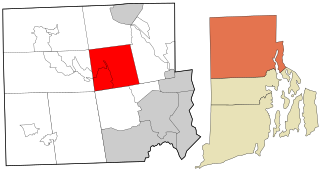
Smithfield is a town that is located in Providence County, Rhode Island, United States. It includes the historic villages of Esmond, Georgiaville, Mountaindale, Hanton City, Stillwater and Greenville. The population was 22,118 at the 2020 census. Smithfield is the home of Bryant University, a private four year college.

Richard Olney was an American attorney, statesman, and Democratic Party politician who served as a member of the second cabinet of President Grover Cleveland as the 40th United States Attorney General from 1893 to 1895 and 34th Secretary of State from 1895 to 1897.

William Sprague IV was the 27th Governor of Rhode Island from 1860 to 1863, and U.S. Senator from 1863 to 1875. He participated in the First Battle of Bull Run during the American Civil War while he was a sitting Governor.

Auckland Campbell Geddes, 1st Baron Geddes, was a British academic, soldier, politician and diplomat. He was a member of David Lloyd George's coalition government during the First World War and also served as Ambassador to the United States.
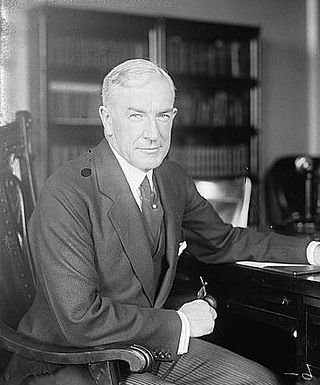
Henry Prather Fletcher was an American diplomat who served under six presidents.

Samuel Greene Arnold Jr. was an attorney and politician from Rhode Island. A Republican, he was most notable for his service as lieutenant governor and as a United States senator.
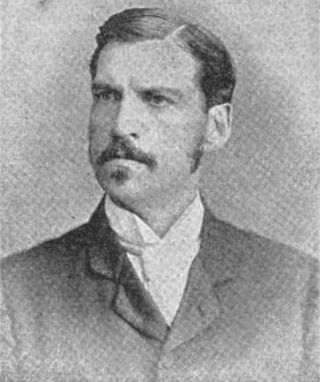
Lloyd Stephens Bryce was an American diplomat and politician who served one term as a U.S. Representative from New York from 1887 to 1889. He was also an author and magazine editor.

Robert Livingston Beeckman was an American stockbroker, sportsman, and politician who served as the 52nd Governor of Rhode Island.

The state of Rhode Island during the American Civil War remained loyal to the Union, as did the other states of New England. Rhode Island furnished 25,236 fighting men to the Union Army, of which 1,685 died. The state used its industrial capacity to supply the Union Army with the materials needed to win the war. Rhode Island's continued growth and modernization led to the creation of an urban mass transit system and improved health and sanitation programs.
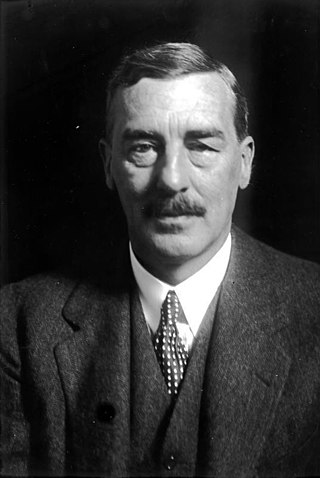
Sir Ronald Charles Lindsay was a British diplomat. He was Ambassador to Turkey from 1925 to 1926 and to Germany from 1926 to 1928, Permanent Under-Secretary for Foreign Affairs from 1928 to 1930 and Ambassador to the United States from 1930 to 1939.

Robert Hale Ives Goddard was a prominent banker, industrialist, U.S. Army officer, state senator and philanthropist.

James John Van Alen was an American socialite. He was appointed Ambassador Extraordinary and Plenipotentiary to Italy on October 20, 1893, but declined the appointment. He was well known as a New York Society leader and was referred to as the "American Prince of Wales."

The 1906–07 United States Senate elections were held on various dates in various states. As these U.S. Senate elections were prior to the ratification of the Seventeenth Amendment in 1913, senators were chosen by state legislatures. Senators were elected over a wide range of time throughout 1906 and 1907, and a seat may have been filled months late or remained vacant due to legislative deadlock. In these elections, terms were up for the senators in Class 2.
Thomas Angell (c.1616–1694) was one of the four men who wintered with Roger Williams at Seekonk, Plymouth Colony in early 1636, and then joined him in founding the settlement of Providence Plantation in what became the Colony of Rhode Island and Providence Plantations. He was a minor at the time of his arrival, but his name appears on several of the early documents related to the settlement of Providence. In the early 1650s, he became active in the affairs of the town, serving as commissioner, juryman, and constable. In 1658, he began his service as the Providence Town Clerk and held this position for 17 years. He wrote his will in 1685, dying almost a decade later in 1694, leaving a widow and many grown children. Angell Street on Providence's East Side is named for him.

Stanford Newel was an American attorney and diplomat who served as United States Ambassador to the Netherlands and Luxembourg.

The 65th New York Infantry Regiment was an infantry regiment in the Union Army during the American Civil War. The regiment wore distinctive chasseur styled uniforms. Its members were recruited primarily from New York, but included recruits from Connecticut, Rhode Island, and Ohio.
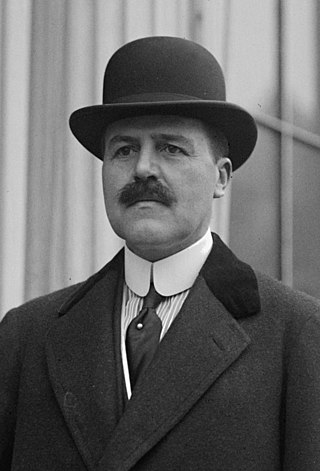
Peter Augustus Jay was an American diplomat who served as U.S. General Consul to Egypt, U.S. Minister to El Salvador and Romania and U.S. Ambassador to Argentina.
Edwin Sheldon Whitehouse was an American diplomat who served as the U.S. Minister to Guatemala and U.S. Minister to Colombia.
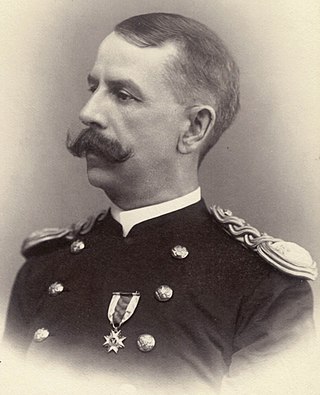
Charles L. Hodges was a career officer in the United States Army. A Union Army veteran of the American Civil War, American Indian Wars, Spanish–American War, and Philippine–American War, Hodges remained in the army from 1861 until retiring in 1911 and attained the rank of major general.

The 1872 Rhode Island gubernatorial election took place on April 3, 1872, in order to elect the governor of Rhode Island. Republican candidate and incumbent governor Seth Padelford won his fourth and final one-year term as governor against Democratic candidate Olney Arnold.
![]() Media related to Olney Arnold at Wikimedia Commons
Media related to Olney Arnold at Wikimedia Commons